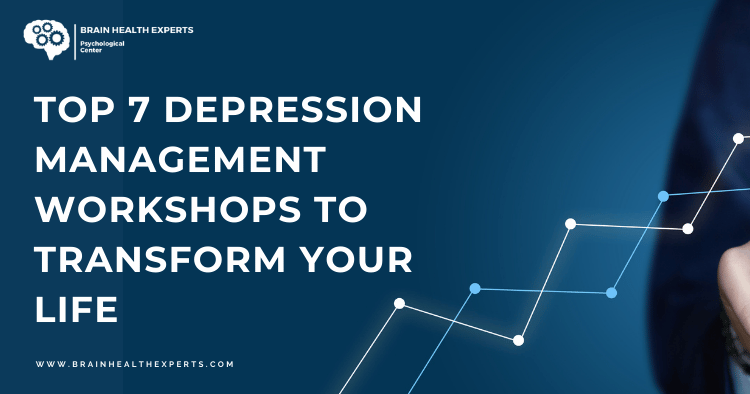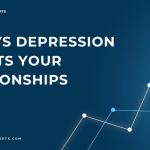Table of Contents
- 1. Understanding Depression
- 2. Why Attend a Workshop?
- 3. Top 7 Depression Management Workshops
- 4. FAQs
- 5. Conclusion
1. Understanding Depression
Depression is more than just feeling sad; it’s a complex mental health disorder that can significantly impact daily life. Symptoms may include persistent sadness, loss of interest in activities, fatigue, changes in sleep and appetite, and difficulty concentrating. According to the World Health Organization (WHO), over 264 million people globally suffer from depression, making it crucial to seek effective management strategies.
2. Why Attend a Workshop?
Workshops can offer a structured environment where individuals can learn about depression, share experiences, and develop coping strategies. Here are some benefits of attending a workshop:
- Expert Guidance: Workshops are often led by mental health professionals who provide evidence-based information and strategies.
- Community Support: Connecting with others facing similar challenges can foster a sense of belonging and reduce feelings of isolation.
- Skill Development: Participants learn practical skills that can be applied in daily life to manage depression effectively.
3. Top 7 Depression Management Workshops
1. The Mindfulness-Based Stress Reduction Program (MBSR)
Overview: Developed by Dr. Jon Kabat-Zinn, MBSR is an evidence-based program that combines mindfulness meditation and yoga to reduce stress and improve emotional regulation.
What to Expect:
- Eight-week course featuring weekly classes and guided meditations.
- Focus on body awareness, breath control, and mindfulness practices.
- Emphasis on self-compassion and acceptance.
Example: Many participants report a significant reduction in symptoms of anxiety and depression after completing the program.
2. Cognitive Behavioral Therapy Workshops
Overview: Cognitive Behavioral Therapy (CBT) is a widely used approach that focuses on changing negative thought patterns to improve emotional well-being.
What to Expect:
- Workshops typically last from a few days to several weeks.
- Participants engage in activities that challenge distorted beliefs and develop healthier thinking patterns.
- Group discussions foster a supportive environment.
Example: Numerous studies have shown CBT to be effective in reducing depression symptoms, making it a popular choice among therapists.
3. The Depression and Anxiety Workshop
Overview: This workshop addresses both depression and anxiety, focusing on the interconnection between these two mental health issues.
What to Expect:
- Interactive sessions that cover coping strategies, relaxation techniques, and lifestyle changes.
- Emphasis on understanding triggers and developing personalized action plans.
Example: Participants often leave with a toolkit of strategies to manage their symptoms effectively.
4. The Art of Happiness Workshop
Overview: This unique workshop combines psychological principles with creative expression to foster happiness and resilience.
What to Expect:
- Activities include art, journaling, and group discussions.
- Focus on cultivating positive emotions and gratitude.
Example: Many attendees report feeling more hopeful and motivated after exploring their creativity.
5. Peer Support Groups
Overview: These informal gatherings allow individuals to share experiences and offer support to one another.
What to Expect:
- Regular meetings often facilitated by trained peer leaders.
- Safe space for sharing challenges and successes.
Example: Participants often find comfort and encouragement from others who understand their struggles.
6. Creative Arts Therapy Workshops
Overview: This workshop utilizes various forms of art to facilitate emotional expression and healing.
What to Expect:
- Activities may include painting, music, dance, and drama.
- Participants are encouraged to express their feelings in creative ways, often leading to breakthroughs.
Example: Many people discover new ways to cope with their emotions through the arts, enhancing their overall mental health.
7. Online Depression Workshops
Overview: With the rise of teletherapy, many workshops are now available online, making them accessible to anyone with an internet connection.
What to Expect:
- Interactive webinars and virtual group sessions.
- Flexibility to participate from the comfort of home.
Example: Online workshops have gained popularity for their convenience and the ability to connect with experts from around the world.
4. FAQs
Q1: How do I choose the right workshop for me?
A1: Consider your specific needs, preferences, and availability. Research each workshop’s content, schedule, and facilitator credentials.
Q2: Are workshops covered by insurance?
A2: Coverage varies by provider, so it’s best to check with your insurance company regarding reimbursement for mental health workshops.
Q3: Can I attend multiple workshops?
A3: Yes! Many people find that attending different workshops provides a well-rounded approach to managing their depression.
5. Conclusion
Depression management workshops can be transformative, providing individuals with the tools and support needed to navigate their mental health challenges. Whether you choose to explore mindfulness practices, engage in creative expression, or connect with peers, there’s a workshop out there for you. Don’t hesitate to reach out for help—taking that first step can lead to a brighter, more fulfilling life.
For more information on mental health resources, visit the National Institute of Mental Health and the American Psychological Association.
By participating in one of these workshops, you’re not just learning; you’re taking an essential step toward reclaiming your life and enhancing your mental well-being.





